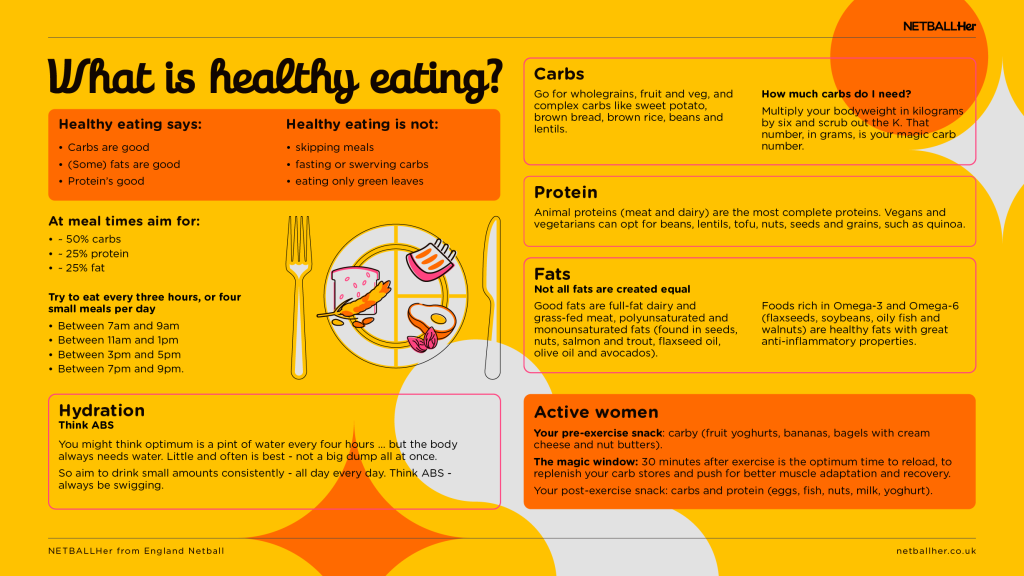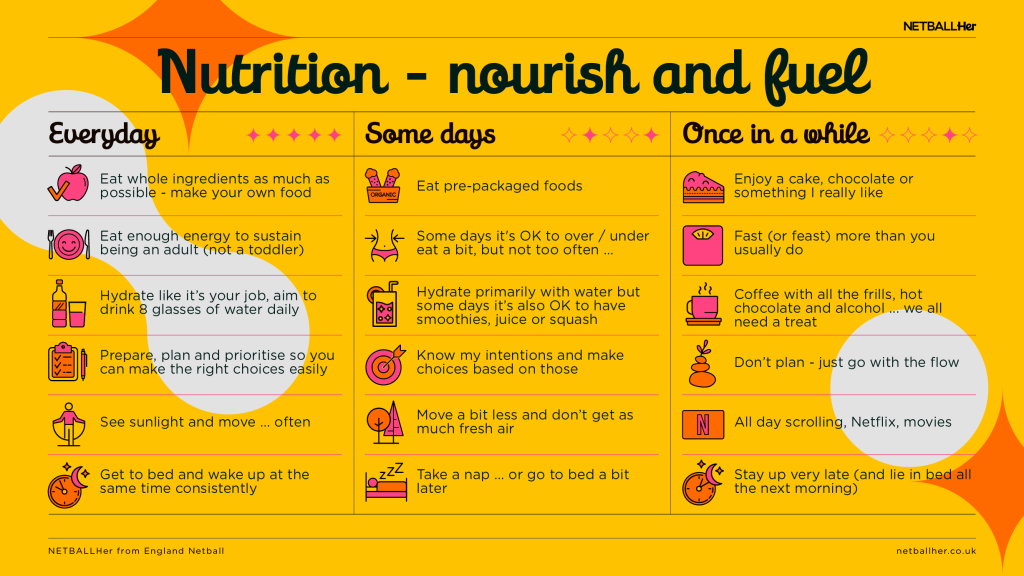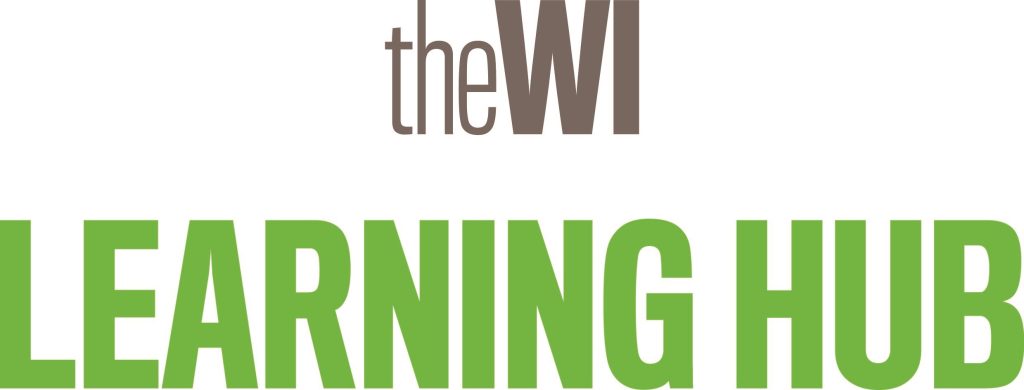This content was created in partnership with England Netball & TheWellHQ
This Nutrition and Hydration week (11-17 March 2024), we are proud to share some useful resources and information courtesy of England Netball & TheWellHQ.

Why is nutrition in midlife different?
Women are vulnerable at various key life stages such as puberty, pregnancy, post-natal and, of course, perimenopause and menopause.
Perimenopause brings massive oestrogen fluctuation and that impacts the body and the brain. When faced with tiredness, pains, low mood, impatience, stress and so on we need to pay extra attention to our diet and optimise it in the best and most realistic ways possible.
I already eat well so do I need to make changes?
If you’ve already established great nutrition habits through life then you may not need to change much.
But we know that’s not everyone’s reality and midlife is a particularly full-on, stressful stage. We often see midlife women reaching for crutch foods such as sugar and carbs, alcohol, and caffeine and those – while they might feel like they bring relief – can make things worse. So good nutrition is here to help. People tend not to think about it when they’re functioning just fine but it’s one of the top tools we have in the toolbox.
What is good nutrition in midlife?
It varies, individual by individual. Some women have the baselines in place, others don’t. Some find it easy to cut out alcohol or sugar, others don’t. A person’s budget, resources and practicalities play a part too.
So it really depends on the individual, their life and their starting point but there are a few universal truths:
- Drink more water
- Identify foods that make you feel better … or worse
- Aim to eat good, healthy meals in a calm environment
- Avoid eating on-the-go or relying on fast/ convenient food
- Remember alcohol isn’t a friend so try to cut it out
- Think of protein as a vital part of each meal
- Don’t aim for perfection, think 80/20
On the last point, thinking about nutrition shouldn’t dominate your whole day so don’t be too super-strict on maintaining and managing it. Aim for 80/20 and don’t stop yourself enjoying the odd treat or meal out – we need those things too.

Why do we experience weight-gain in midlife?
It’s a cocktail of factors.
- Changes in the gut and microbiome occur over time so older women do have a different bacterial profile than younger women. Metabolism as such doesn’t change – the “middle-age spread” isn’t inevitable – but the risk of insulin resistance does increase.
- One of the biggest factors in weight – and health generally – is sleep. Inadequate sleep often causes a person to overeat calorie-dense foods and sugar the next day to buoy up energy levels. A well-rested brain is more likely to feel full after a salad because the signalling works much better.
- Also, and quite frankly, women do tend to become more sedentary as the years go on and that in itself leads to weight-gain, while denting muscle and bone health for a vicious cycle of inactivity.
For more on menopause and nutrition support head to the NETBALLHer website here: https://netballher.co.uk/nutrition/nutrition-and-menopause/
General female health support: www.netballher.co.uk
The information contained on this website is for general information purposes only and is not intended to provide health advice, diagnose, treat, cure or prevent disease. Always seek medical advice.



